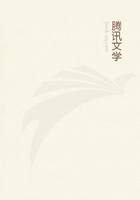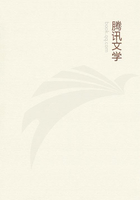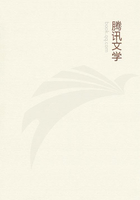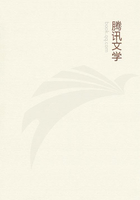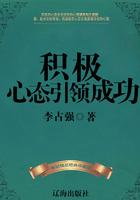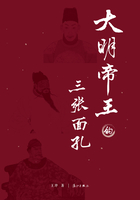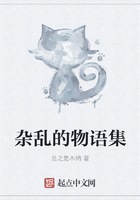When I was elected president of the New York Central Railroad, the Yale Association of New York gave me a dinner. It was largely attended by distinguished Yale graduates from different parts of the country. MacVeagh was one of the speakers. In the course of his speech he said: "I was alarmed when I found that our friend Chauncey had been elected president of the most unpopular railroad there is in the country. But rest assured, my friends, that he will change the situation, and before his administration is closed make it the most popular of our railroad corporations, because he will bring the stock within the reach of the poorest citizen of the land." The stock was then at the lowest point in its history on account of its life-and-death fight with the West Shore Railroad, and so, of course, the reverse of my friend MacVeagh's prediction was not difficult.
One of the greatest and most remarkable orators of his time was Henry Ward Beecher. I never met his equal in readiness and versatility. His vitality was infectious. He was a big, healthy, vigorous man with the physique of an athlete, and his intellectual fire and vigor corresponded with his physical strength. There seemed to be no limit to his ideas, anecdotes, illustrations, and incidents. He had a fervid imagination and wonderful power of assimilation and reproduction and the most observant of eyes. He was drawing material constantly from the forests, the flowers, the gardens, and the domestic animals in the fields and in the house, and using them most effectively in his sermons and speeches.
An intimate friend of mine, a country doctor and great admirer of Mr. Beecher, became a subscriber to the weekly paper in which was printed his Sunday sermon, and carefully guarded a file of them which he made. He not only wanted to read the sermons of his favorite preacher, but he believed him to have infinite variety, and was constantly examining the efforts of his idol to see if he could not find an illustration, anecdote, or idea repeated.
Mr. Beecher seemed to be teeming with ideas all the time, almost to the point of bursting. While most orators are relying upon their libraries and their commonplace book, and their friends for material, he apparently found more in every twenty-four hours than he could use. His sermons every Sunday appeared in the press.
He lectured frequently; several times a week he delivered after-dinner speeches, and during such intervals as he had he made popular addresses, spoke at meetings on municipal and general reform, and on patriotic occasions. One of the most effective, and for the time one of the most eloquent addresses I ever heard in my life was the one he delivered at the funeral of Horace Greeley.
When the sentiment in England in favor of the the South in our Civil War seemed to be growing to a point where Great Britain might recognize the Southern Confederacy, Mr. Lincoln asked Mr. Beecher to go over and present the Union side. Those speeches of Mr. Beecher, a stranger in a strange country, to hostile audiences, were probably as extraordinary an evidence of oratorical power as was ever known. He captured audiences, he overcame the hostility of persistent disturbers of the meetings, and with his ready wit overwhelmed the heckler.
At one of the great meetings, when the sentiment was rapidly changing from hostility to favor, a man arose and asked Mr. Beecher:
"If you people of the North are so strong and your cause is so good, why after all these years of fighting have you not licked the South?" Mr. Beecher's instant and most audacious reply was:
"If the Southerners were Englishmen we would have licked them."With the English love of fair play, the retort was accepted with cheers.
While other orators were preparing, he seemed to be seeking occasions for talking and drawing from an overflowing reservoir.
Frequently he would spend an hour with a crowd of admirers, just talking to them on any subject which might be uppermost in his mind. I knew an authoress who was always present at these gatherings, who took copious notes and reproduced them with great fidelity. There were circles of Beecher worshippers in many towns and in many States. This authoress used to come to New Haven in my senior year at Yale, and in a circle of Beecher admirers, which I was permitted to attend, would reproduce these informal talks of Mr. Beecher. He was the most ready orator, and with his almost feminine sympathies and emotional nature would add immensely to his formal speech by ideas which would occur to him in the heat of delivery, or with comment upon conversations which he had heard on the way to church or meeting.
I happened to be on a train with him on an all-day journey, and he never ceased talking in the most interesting and effective way, and pouring out from his rich and inexhaustible stores with remarkable lucidity and eloquence his views upon current topics, as well as upon recent literature, art, and world movements.
Beecher's famous trial on charges made by Theodore Tilton against him on relations with Tilton's wife engrossed the attention of the world. The charge was a shock to the religious and moral sense of countless millions of people. When the trial was over the public was practically convinced of Mr. Beecher's innocence. The jury, however, disagreed, a few holding out against him. The case was never again brought to trial. The trial lasted six months.
One evening when I was in Peekskill I went from our old homestead into the crowded part of the village, to be with old friends.
I saw there a large crowd and also the village military and fire companies. I asked what it was all about, and was informed that the whole town was going out to Mr. Beecher's house, which was about one and one-half miles from the village, to join in a demonstration for his vindication. I took step with one of the companies to which I belonged when I was a boy, and marched out with the crowd.

